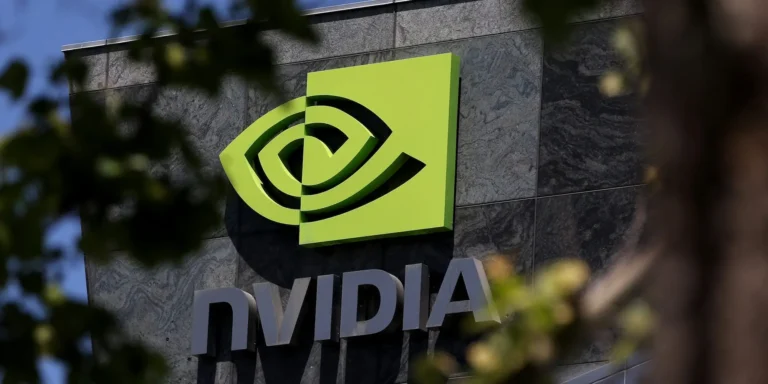The minds behind JPMorgan’s AI-driven ETF share the high-yielding strategy that’s helped it beat 94% of its human-powered peers this year — and the 7 investments they’re making now

- JPMorgan’s income-focused ETF accumulated $4 billion in assets at a record pace.
- The top-performing ETF uses an AI model that helps managers find stocks with strong fundamentals.
- Here are seven parts of the market that the co-manager in charge of stock selection likes right now.
The JPMorgan Nasdaq Equity Premium Income ETF (JEPQ) is the market leader.
Though strong returns are a welcome bonus for the growth-focused ETF, co-manager Hamilton Reiner told Insider in a recent interview that the fund’s main goal is to deliver high income while minimizing risk and volatility. Reiner’s goal is to deliver strong risk-adjusted returns rather than just maximize profits.
Reiner and his colleagues, Eric Moreau and Andrew Stern, aren’t complaining about their fund’s 22.6% increase in 2023. It’s the icing on the cake for an unexpected treat, as Reiner admitted that he didn’t expect the outstanding rebound in growth stocks this year.
“Better lucky than good — we didn’t expect the Nasdaq to rise more than 30% this year,” Reiner said. “It’s nice that it has for our investors because it will share in some of the upside while also providing really good income.”
According to JPMorgan, investors are flocking to the $4.7 billion ETF at an unprecedented rate. According to a firm representative, the actively managed ETF, which debuted in May 2022, is the fastest of its kind to reach $4 billion in assets.
It’s difficult to find flaws in JPMorgan’s growth-focused income ETF. There are many reasons why the fund stands out, from its enticing 8.7% yield to its top-6% year-to-date performance, according to Morningstar, not to mention its forward-thinking artificial intelligence-driven approach.
“What we’re doing — and I’m not being braggadocio, I’m really not — is unique, differentiated, and truly special,” Reiner said.
AI has boosted returns — but not in the way you think
Reiner, Moreau, and Stern did not achieve success by chance. Instead, they’ve distinguished themselves by adhering to a carefully crafted strategy that, for better or worse, prioritizes income.
“Income never goes out of style,” said Reiner. “Everyone is always interested in, needs, or desires income.” It’s one of those things that people’s portfolios rely on.”
Although income investing is timeless, it will face difficulties in 2022. Bonds had their worst year ever, with interest rates rising and inflation-adjusted yields falling, but Reiner and his team remained committed to the beleaguered asset class, which has become a portfolio must-have in 2023.
Bonds, on the other hand, are far from the only way to profit from investments. Dividend-paying stocks can provide consistent payments, and selling options contracts on an index is a compelling way to earn a few dollars while lowering portfolio risk, according to Reiner.
Moreau is in charge of stock selection for the long part of the portfolio, but he has plenty of help — both human and non-human. To help find suitable investments, JPMorgan’s income-focused ETF employs an AI model that gathers and sorts through a treasure trove of information, particularly financial statements.
“We believe that thorough analysis of as much financial information as possible will assist us in forecasting those company financials,” Moreau explained. “And I don’t think either of those principles is novel, revolutionary, or unique to AI — new capabilities have simply allowed us to approach the problem in a new way.”
The AI-powered process not only saves the team countless hours of work, but it also helps identify which companies have appealing fundamentals and how likely they are to succeed, according to Moreau.
“We don’t have perfect foresight, but by identifying and quantifying the level of uncertainty in our estimates, as well as what’s driving that uncertainty, we can use that information at the portfolio construction stage to build a portfolio that balances those risks against the rewards we see from the research process,” Moreau explained.
While AI is more than just a filter for JPMorgan’s ETF, it’s also worth noting that human portfolio managers, not machines, decide what goes into the fund. According to Moreau, the team determines which stocks make the cut primarily based on a bottom-up analysis of their businesses.
“We’re looking for idiosyncratic stock opportunities,” Moreau explained. “As a result, you won’t see us take a significant style tilt in any direction, whether value or size.” We’re looking for company fundamental drivers that provide us with a good idiosyncratic risk-reward balance.”
However, Reiner and Moreau stated that the ETF’s long portion is designed to have a tracking error of only 2% to 3%, making it closely correlated to the Nasdaq 100 index. As a result, the ETF’s largest holdings may not be Moreau’s favorite names or overweight positions.
Aside from putting a premium on income and using AI to find standout stocks, transparency and liquidity are two characteristics that distinguish JPMorgan’s income ETF. The fund’s holdings are refreshed daily, and it pays out income monthly rather than quarterly. Moreover, unlike mutual funds, it trades throughout the day, allowing investors to access their funds at any time.
“Great products without great liquidity are not great products,” said Reiner. “We wanted to make sure that the strategy was liquid enough so that clients could always get in — hopefully never get out — but when they did, they could get out at a nice, tight level.”
7 top places to invest now
After discussing the ETF’s investment process, Moreau highlighted several areas of the market in which he is currently bullish. Despite his fund’s embrace of artificial intelligence, the fund manager said he’s treading lightly in that industry because valuations have “gotten a little bit ahead of themselves.”
Instead, he is optimistic about companies involved in electrification and automation, as well as component and semiconductor manufacturers. Firms in those sectors that he likes right now include NXP Semiconductors (NXPI), Synopsys (SNPS), and NextEra Energy (NEE).
NXP is a Dutch company that embodies Moreau’s preferences because its chips are the foundation of self-driving vehicles, including electric vehicles. The chipmaker is a category leader, according to the fund manager.
Because its specialized semiconductors are in high demand, Synopsys stands to benefit from the AI boom. The electronic design automation company’s shares are up 37% in 2023, and while its 64x earnings ratio isn’t for the faint of heart, it trades at a more manageable 33.9x forward earnings.
Finally, NextEra Energy is a Florida-based utility that is a pioneer in renewable energy. Moreau believes the green energy pioneer will benefit more from the Inflation Reduction Act (IRA) passed last summer.






